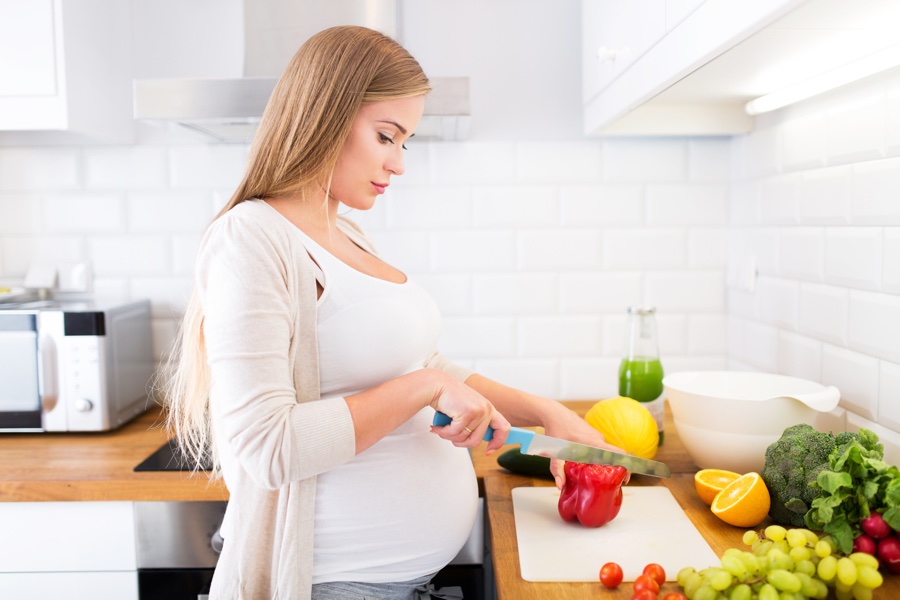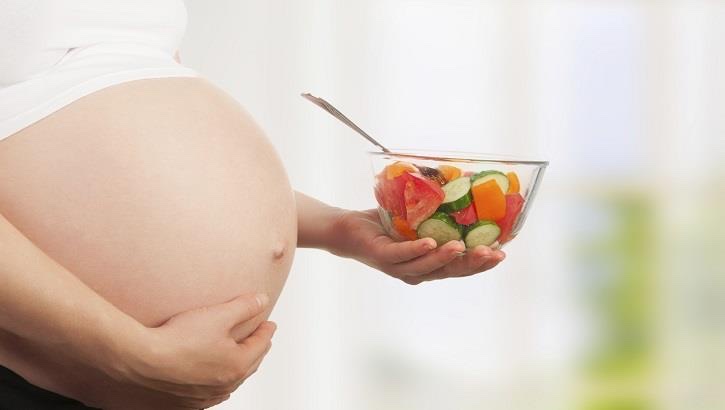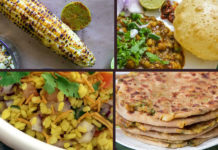Getting pregnant is one of the most important milestones in a woman’s life. For those who got pregnant for the first time, mixed emotions of joy, fear, and confusion can be felt. So, what are the chances of getting pregnant? Women who have been trying to conceive for years, the pregnancy is the fulfillment of a dream. Couples want to have a healthy baby and to achieve this, expecting mothers should stick to a healthy diet and don’t pay attention to food cravings.
Foods Recommended for Pregnant Women
Usually, a woman who has just announced that she is pregnant gets lots of attention and advice. When it comes to foods that she can eat while pregnant, so many suggestions can be confusing.
The best way to settle the issue is to ask your doctor or check authoritative articles and books regarding what foods to include in your diet while you are pregnant. Here are some tips on what healthy foods to include in your diet.
1. Fresh Fruits and Vegetables.
When it comes to eatings plenty of fresh fruits and vegetables during pregnancy, everyone agrees that these foods are great for the growing baby in your womb. The fetus gets nutrients from the foods the mother eats when you consume fresh fruits and vegetables, you are providing your baby with lots of natural vitamins and minerals that will keep it healthy and strong.
Mothers who eat fruits and vegetables while pregnant are also resistant to colds and other common illnesses that can affect the baby. Eating foods rich in vitamins and minerals is one reason why most pregnant women seem to glow. Also, when the baby is born, it will have healthy pinkish and soft skin, healthy hair while growing bigger, and bright eyes.
However, be careful to thoroughly wash all vegetables and fruits that you eat to avoid getting ill, which can be dangerous for your baby. The outside portion of fruits should be washed thoroughly before cutting them so that germs will not contaminate the portion that you eat. Even packed fresh vegetables that you buy from the market should be washed even if the label says they have been washed already.
2. Some Varieties of fish contain omega-3 fatty acids that are important for brain development.
However, some fishes contain high level of mercury, which can be dangerous to the baby. These are the fishes that live long because the longer they live; the more mercury and pollutants are accumulated in their bodies and so they should be avoided. Big fishes like shark and swordfish are harboring in their bodies huge amount of contaminants that can endanger your baby’s development. Eating other types of fishes including shrimps, tuna, and crabs, as long as in moderate amounts, is good for you and for your baby.
3. Soft cheese
This food as long as made of pasteurized milk, is a healthy food for the mother and the baby because it is rich in calcium. However, unpasteurized variety may contain listeria, bacteria that can be passed to the fetus and cause miscarriage. When buying soft cheese, it is recommended that mothers-to-be should check the label to determine if it is made of pasteurized milk or not. If not, you should avoid it.
4. Lentils and dried beans.
Pregnant women need protein for the baby in her womb. Dried beans and lentils are rich in fiber and they can help prevent getting constipated. These foods are available anywhere and can be prepared easily.
5. Non-fat milk.
Your body and your baby need calcium in order to keep strong bones. Your baby needs calcium its growth. Increase your intake of non-fat milk and if you are that type of person who does not like milk, now is the time to learn it for your health and the well-being of your baby.
6. Iron-rich foods.
Some pregnant women complain about fatigue the whole day. This is a sign that they lack iron. Pregnant women need twice the amount of iron that non-pregnant women need. Lean meat is the best source of iron and is recommended for pregnant women.
Food that Pregnant Women Should Avoid
1. Sea Foods and Meat Products that Are Uncooked.
Undercooked eggs, clams, sushi, raw oysters, and homemade eggnogs harbor bacteria that can cause diarrhea and stomach pain. When the mother suffers from diarrhea, she can become dehydrated, which is dangerous for the baby. In addition, the bacteria can pass through the placenta and make the baby sick, resulting in miscarriage.
2. Raw sprouts.
Sprouts of all kinds that are not cooked may contain bacteria because no amount of washing can remove the germs. To avoid getting contaminated and sick, avoid raw sprouts during all stages of pregnancy.
3. Foods High in Calories.
Some pregnant women think that because they should eat for two persons now, they need twice the calories they ordinarily need but this is wrong. Consuming foods rich in calories can cause pregnancy weight gain, which can bring some complications to their pregnancy. Being overweight while pregnant can lead to eclampsia, which is one of the major causes of death among women during delivery. Foods to be avoided are ice cream, chocolates, and soda.
4. Foods Rich in Nitrate.
Hotdogs and cured meat have rich nitrate content, and should be eaten rarely during pregnancy. Besides, these foods have been linked to brain tumor and diabetes.
5. Herbal Tea.
Many herbal drinks may contain substances that can affect your baby’s development. Avoid drinking herbal teas without asking the advice of your doctor.
6. Caffeine and alcohol.
As much as possible, avoid excessive consumption of caffeine and alcoholic drinks. Some doctors recommend at most three cups of coffee a day while no alcohol intake is highly recommended because alcohol is found to affect the growth and development of your baby’s brain. Babies born to alcoholic mothers may have deformed face, heart ailments, and may suffer from mental retardation.
If you are pregnant now, consider these tips seriously in order for you and your unborn baby to have excellent health.














